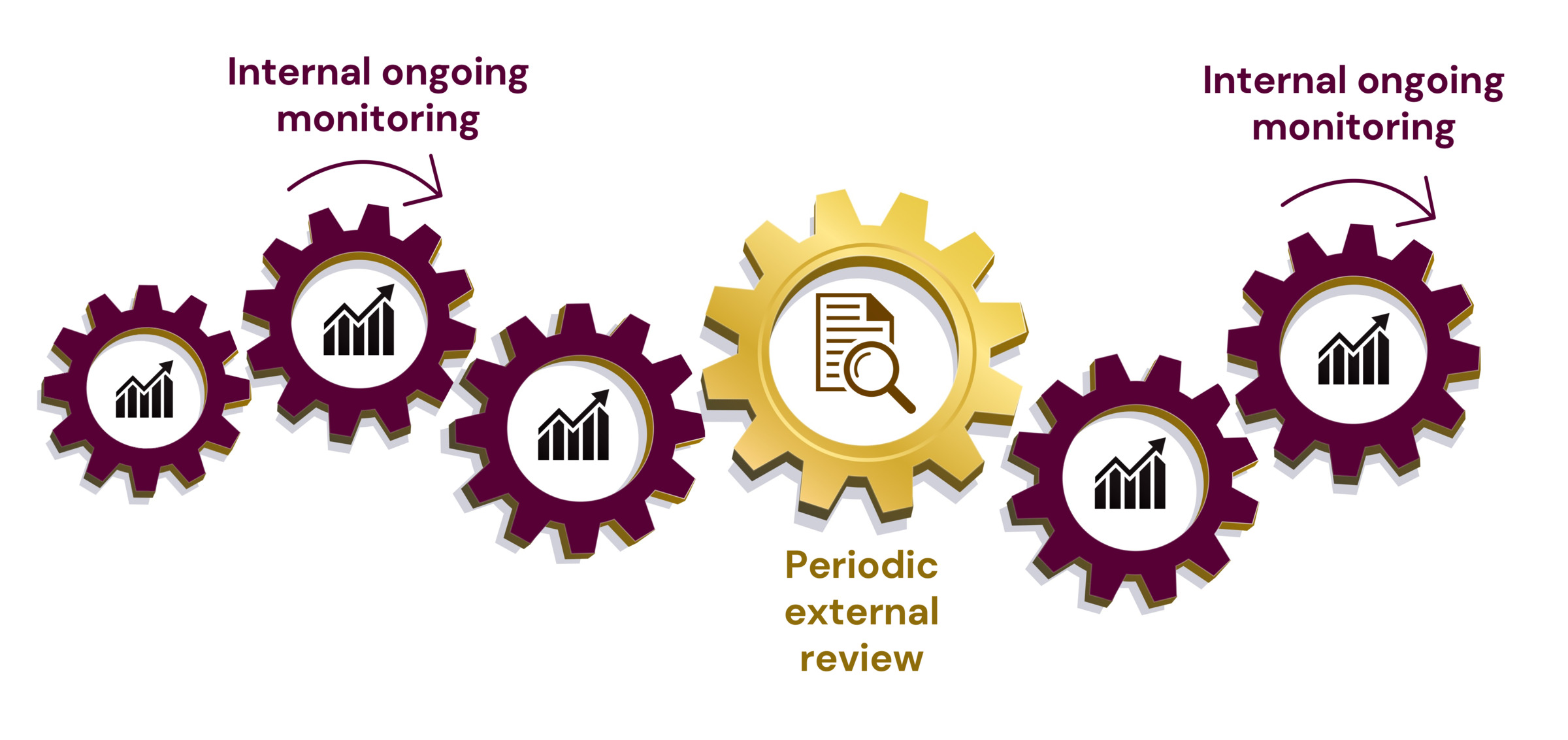About KI’s quality assurance system
Karolinska Institutet (KI) has a quality assurance system (QA-system) to provide systematic quality assurance in research and in all levels of education.
KI’s QA-system is based on the Swedish Higher Education Act and Ordinance. It also follows the Standards and Guidelines for Quality Assurance in the European Higher Education Sector (ESG) and it embraces the goals described in KI’s Strategy 2030.
More information the quality assurance system and how it is applied in the different parts of KI.
The QA-system consists of pre-defined processes, organisation and responsibilities as well as steering documents for the quality assurance, and thus sets the framework for the systematic processes in which quality assurance is performed. The quality assurance includes follow-up processes as well as quality development through the continuous work of improvements.
The overall purpose with the QA-system is to ensure that KI can fulfil the expectations of a Swedish university, reach the goals in KI’s Strategy 2030 and in doing so achieve and maintain high quality both today and in the future.
KI’s QA-system includes two main processes: internal ongoing monitoring and periodic external review (see illustration below).
Internal ongoing monitoring & periodic review

Organisation
Quality assurance at KI is conducted at several levels of the organisation. At the central level quality assurance is the responsibility of the Faculty Board and its three Committees:
- Committee for first and second cycle education
- Committee for third cycle education/doctoral education
- Committee for research
The University director manages the quality assurance for KI’s activities in administrative, legal and economic areas.
Shared responsibility
KI’s President has the overall responsibility for the QA-system, the systematic quality assurance work and for the quality performed in all areas. The President makes decisions about steering documents in the QA-system and delegates responsibility to the Faculty Board to make strategic decisions about quality assurance activities within education and research. The coordinating body for KI’s QA-system supports the President and the Faculty Board in monitoring and developing the QA-system.
The Faculty Board is responsible for the quality assurance activities encompassing education, doctoral education and research, which lie within the three Committees, each led by an academic vice president.
The heads of KI’s 21 departments have the overall responsibility for the quality assurance at their departments. The executive responsibility to follow up the quality and the quality development in education and doctoral education lies with the respective director of education and director of doctoral education at each department.
Follow-up and development of the systematic quality work
The Council for systematic quality work advises the Faculty Board on the development of the quality system for the systematic quality work at KI.
- The Council is led by the academic leader for the development of systematic quality work, and the group includes members appointed within the faculty board's three committees and by heads of department or deputy heads of department appointed within each one of KI:s three campuses. A member of the management of the university administration and two student representatives are also appointed in the Council.
- The Council follows up the quality system every year and reports to KI's President and Faculty Board.
